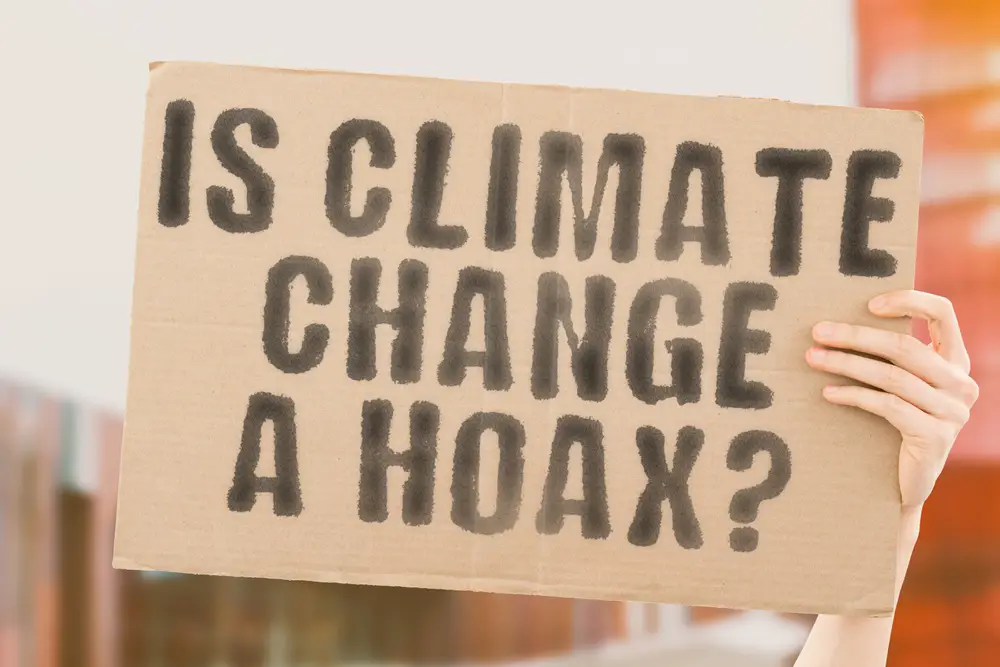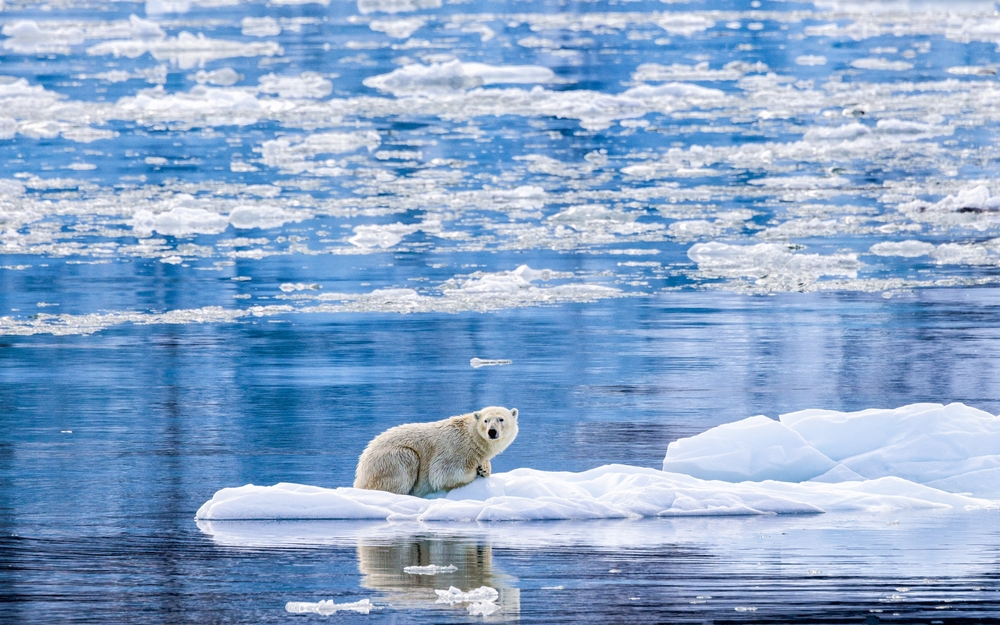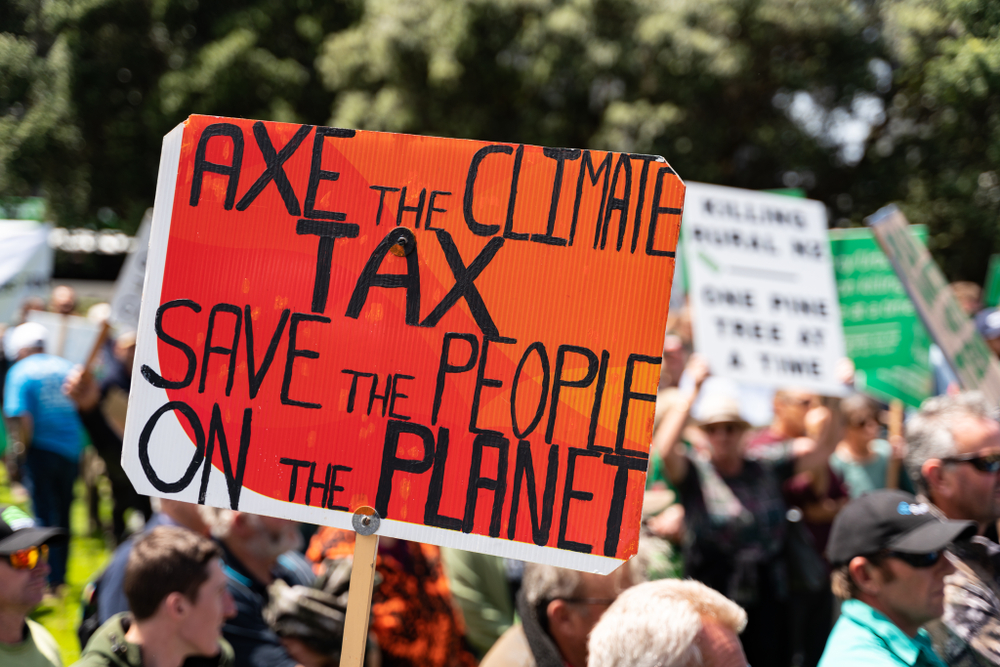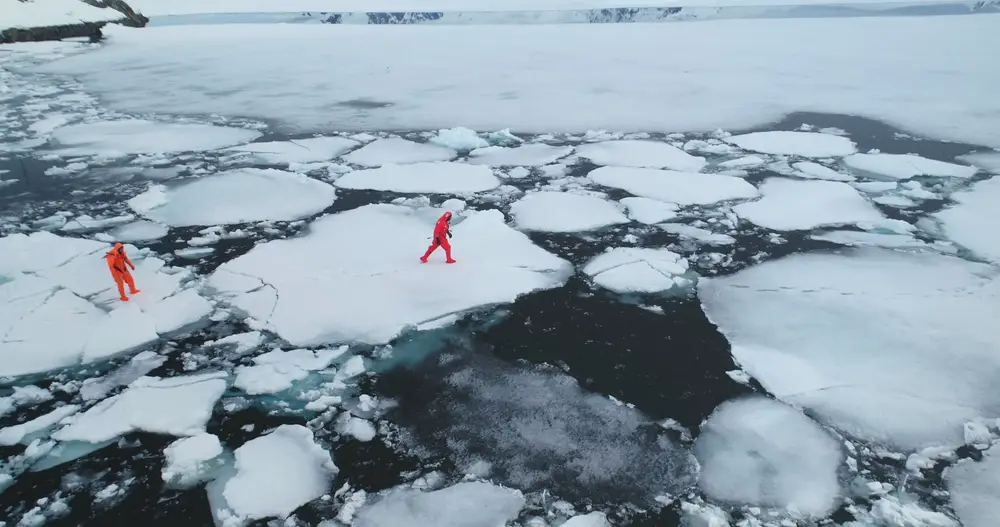In an era where science and technology evolve at lightning speed, skepticism towards widely accepted phenomena like climate change might seem baffling. Yet, the climate change hoax theory persists in certain circles. Whether it’s a manifestation of distrust in scientific authorities, a misunderstanding of data, or the sheer allure of controversy, a subset of the population continues to challenge the mainstream consensus on climate change.
1. They Trust High-Profile Deniers

The presence of high-profile climate change deniers can lend credibility to the hoax narrative for some people. When influential figures publicly question or deny climate change, it can reinforce skeptical beliefs and create a sense of validation. These deniers often have platforms that allow them to reach vast audiences, spreading doubt and misinformation. The effect is amplified when these figures come from backgrounds of perceived authority, such as politics or business.
The media often covers statements from high-profile deniers extensively, providing them with a larger platform to voice their skepticism. This coverage can lead to a perception that climate change denial is a more widely accepted position than it actually is. As a result, individuals who are already skeptical may feel bolstered in their beliefs. The influence of these deniers is significant, as they can shape public opinion and contribute to the persistence of the climate change hoax theory.
2. They Believe It’s Politically Motivated

For some, climate change is tightly interwoven with politics, leading to skepticism about its legitimacy. Certain groups argue that climate change is a political tool used to control populations and drive specific agendas. According to reports from the Environmental Defense Fund, there is a tendency to associate climate policies with economic restrictions, thus fueling claims of political manipulation. This perception is amplified when political figures use climate change narratives to promote legislation or economic changes that some view as intrusive or unfair.
The notion that climate change is politically driven can create an “us vs. them” mentality, where scientific data is perceived as propaganda. Those who believe in this theory often view climate scientists as politically biased or motivated by funding rather than facts. The polarization in politics further exacerbates this issue, leading to a deep-seated mistrust of any climate-related information coming from perceived opposing political sides. This skepticism can be deeply rooted in individual ideologies, making it difficult to shift perspectives.
3. They Misunderstand Scientific Consensus

A significant number of climate change skeptics simply misunderstand the concept of scientific consensus. They may perceive science as inherently divided, failing to recognize the overwhelming agreement among scientists on climate change. Climate scientists agree that human activities are causing global warming. Despite this, the complexity and nuances of scientific language can lead to confusion and misinterpretation among the general public.
The media can also play a role in misunderstanding scientific consensus by providing platforms for fringe opinions in the name of balanced coverage. This can give the impression that scientific communities are more divided than they actually are. When coupled with the diverse opinions found on social media, people might cherry-pick information that aligns with their pre-existing beliefs. This can reinforce the notion that there is no real agreement on climate change, fueling skepticism.
4. They Think It’s Financially Fueled

The belief that climate change is a hoax often ties into concerns about economic impact as Science Direct notes. Many skeptics worry about the financial burden of climate policies, fearing they will lead to increased taxes, higher prices, and economic downturns. The fear of economic consequences can outweigh the perceived threat of climate change, especially in communities heavily reliant on industries like coal or oil. The argument here is that climate change narratives are exaggerated to justify regulatory measures that harm businesses and economies.
Those who subscribe to this theory may argue that the perceived benefits do not justify the economic costs of addressing climate change. They might question the validity of climate projections that suggest catastrophic economic impacts if no action is taken. This perspective can be seen as prioritizing immediate economic stability over long-term environmental health. The tension between environmental policies and economic growth is a significant driver of skepticism, as individuals weigh personal financial security against broader climate concerns.
5. They’re Influenced By Pseudoscience

The internet is a double-edged sword, offering access to information but also to misinformation and pseudoscience. Some climate change skeptics fall prey to pseudoscientific theories that appear credible but lack rigorous scientific backing. These theories can spread rapidly online, convincing individuals who are already skeptical of mainstream science. For example, a study by the Yale Program on Climate Change Communication highlights the role social media plays in the dissemination of climate misinformation.
Pseudoscientific claims often use complex language and cherry-picked data to create an illusion of legitimacy. This can be particularly persuasive for individuals without a strong background in scientific methodology, leading them to question the validity of climate science. When coupled with the echo chamber effect of social media, these ideas can become deeply ingrained in certain communities. The influence of pseudoscience is a powerful force in the climate change hoax narrative, complicating efforts to promote scientific literacy.
6. They Misinterpret Climate Variability

Climate change skeptics frequently cite natural climate variability as evidence against human-induced global warming. They argue that the climate has always changed and that current changes are part of natural cycles rather than human activities. This misunderstanding stems from a lack of distinction between weather and climate, as well as misinterpretation of historical climate data. While natural factors do affect climate, the current warming trend is unprecedented in its speed and magnitude due to human influence, NASA reports.
The distinction between natural climate variability and anthropogenic climate change can be subtle and complex, leading to confusion. Skeptics might point to historical events like the Ice Age as examples of natural climate shifts, using them to argue against current scientific findings. However, these arguments often overlook the accelerated rate of current climate changes and the overwhelming evidence pointing to human activities as the primary driver. Misinterpretations like these contribute to the persistence of the climate change hoax theory, as people struggle to reconcile scientific evidence with observable weather patterns.
7. They Don’t Trust Expert Opinions

In an age where information is just a click away, some people have grown increasingly skeptical of expert opinions, including those on climate change. The democratization of information means that anyone can voice their opinion online, which sometimes challenges traditional expertise. This has led to a cultural shift where people may question the validity of expert consensus, particularly in fields like climate science. The idea that “everyone’s opinion is valid” can diminish the weight of scientific expertise in public discourse.
This skepticism towards experts is often fueled by a few high-profile instances where experts were wrong or changed their opinions as more information became available. Such occurrences are part of the scientific process, but they can be misinterpreted as evidence of unreliability. When combined with a general distrust in institutions, this can lead some to dismiss climate science outright. The erosion of trust in experts is a crucial factor in the belief that climate change is a hoax, as it undermines the credibility of scientific consensus.
8. They Believe Conspiracy Theories

Conspiracy theories can be emotionally compelling, offering simple explanations for complex issues like climate change. They often appeal to emotions rather than facts, providing a sense of control or understanding in an uncertain world. For some, the idea that climate change is a hoax orchestrated by powerful interests is more satisfying than accepting the complexity of climate science. This emotional appeal can be particularly strong among individuals who feel disenfranchised or distrustful of mainstream narratives.
The allure of conspiracy theories lies in their ability to create a sense of community among believers. This sense of belonging can be powerful, reinforcing skeptical beliefs and discouraging critical examination of opposing viewpoints. The emotional satisfaction derived from believing in a climate change hoax can make it difficult for individuals to accept scientific evidence to the contrary. The appeal of conspiracy theories is a potent force, drawing people into narratives that challenge mainstream understanding.
9. They’re Resistant To Change

Climate change denial can also stem from a resistance to change, particularly when it threatens established ways of life. Addressing climate change often requires significant lifestyle changes, such as reducing carbon footprints or altering consumption habits. For some, these changes are perceived as threats to personal freedoms or conveniences, leading to skepticism towards climate science. The idea that climate change is a hoax can serve as a justification for maintaining the status quo.
Resistance to change is a natural human trait, and it can be particularly strong in areas where livelihoods are tied to industries affected by climate policies. In such cases, accepting climate change means acknowledging the need for potentially disruptive changes. This can lead to cognitive dissonance, where individuals reject scientific evidence to avoid confronting uncomfortable truths. The desire to preserve existing ways of life is a powerful motivator for some climate change skeptics.
10. They Fall For Fake News

Media bias can play a significant role in shaping public perceptions of climate change. Some media outlets may present climate change in a way that aligns with their political or economic interests, leading to biased reporting. This can result in a skewed understanding of climate science among audiences, fueling skepticism and belief in a hoax narrative. The way climate change is framed in the media can have a profound impact on public opinion.
The media’s role in shaping perceptions of climate change can be particularly influential when it reinforces existing beliefs. For individuals predisposed to skepticism, biased media coverage can provide validation for their views. This can create an echo chamber effect, where individuals are exposed only to information that supports their beliefs. Media bias is an important factor to consider when examining the persistence of climate change skepticism.
11. They Can’t Grasp The Complexity Of Climate Science

The scientific study of climate change is inherently complex, which can lead to misunderstandings and skepticism. Climate science involves intricate models and projections that may be difficult for the average person to fully grasp. This complexity can create a barrier to understanding, leading some to dismiss climate science as unreliable or unnecessarily complicated. The belief that climate change is a hoax can stem from a perception that the science is too convoluted to be credible.
The complexity of climate science can also lead to misinterpretations of data and projections. These misinterpretations can be exploited by those who wish to cast doubt on climate science, further fueling skepticism. The challenge of communicating complex scientific concepts to the general public is a significant hurdle in addressing climate change denial. Simplifying these concepts without losing accuracy is crucial in combating the belief that climate change is a hoax.
12. They Point Out Inconsistencies In Climate Projections

Climate change skeptics often point to perceived inconsistencies in climate projections as evidence of a hoax. They may argue that if projections change over time, they cannot be trusted. This misunderstanding stems from a lack of awareness of how scientific models are updated as new data becomes available. In reality, the refinement of projections is a normal part of the scientific process, reflecting advances in knowledge and technology.
The perception of inconsistency can be exacerbated by media reports highlighting changes in climate projections. These reports may present updates in a way that suggests uncertainty or unreliability. For those already skeptical of climate science, this can reinforce beliefs that projections are untrustworthy. Understanding the iterative nature of scientific modeling is important in addressing skepticism around climate projections.
13. They Have Deep-Seated Ideological Beliefs

Deep-seated ideological beliefs can influence perceptions of climate change, leading some to view it as a hoax. These beliefs may be rooted in political, religious, or cultural ideologies that conflict with the implications of climate science. For example, some individuals may prioritize economic growth or individual freedoms over environmental concerns, leading to skepticism. Ideological beliefs can shape how individuals interpret or dismiss scientific evidence.
The influence of ideology on climate change perceptions can create an environment where scientific facts are secondary to personal beliefs. This can result in selective exposure to information that aligns with one’s ideology, reinforcing skeptical views. The challenge lies in addressing these ideological barriers while respecting individual beliefs. The intersection of ideology and climate change is a complex issue that requires nuanced approaches to foster understanding.
